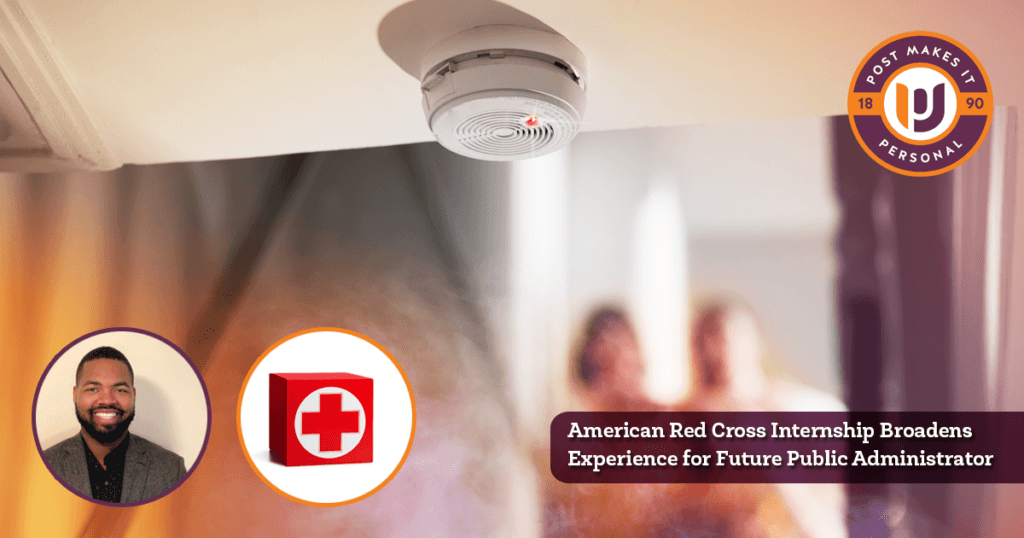
I had the opportunity to work for the American Red Cross (ARC) as an intern in the greater New York area program last summer. The experience has broadened my understanding of the role and importance of nonprofits in emergency management response.
Interns learn first-hand about the organization’s daily and key activities. They are placed in a department that aligns with their interests and goals and paired with a senior response employee.
During my internship, I was part of the “Sound the Alarm” campaign. Seven people die in home fires every day due to not having working alarms. The campaign seeks to educate communities about the life-saving importance of smoke detectors and workers install free smoke alarms in at-risk communities across the nation.
I was also part of an emergency response team that was dispatched to fires in emergency response vehicles. These vehicles contain emergency provisions, such as snacks, clothing, and water for displaced individuals. Once on the scene, we determined who wanted assistance and discussed with them what we could provide. Sometimes this meant providing food, cleaning supplies, temporary hotel lodging or financial assistance.
ARC responds to an emergency every 8 minutes, but interns are also exposed to the business aspects of the organization. Established in 1881, it is a nationwide nonprofit humanitarian organization with 30,000 employees and over 160,000 volunteers. The organization is the largest supplier of blood in the United States and provides emergency assistance, disaster relief, and disaster preparedness education.
Unlike government emergency response agencies, for non-profits such as ARC, fundraising and mobilization of funds are critical to accomplishing their mission.
ARC offers both paid and unpaid internships to undergraduate and graduate students throughout the United States. The formal program runs for ten weeks although different units might make adjustments to the schedule. The principal requirement for students who want to be considered for the position is that they are mission-focused.
The interview process is rigorous to ensure that successful candidates are capable of working in disaster response units and have strong interpersonal communication skills. Post University’s EMH program curriculum helped prepare me to complete the interview process successfully.
While my primary goal is to work for FEMA, the ARC internship allowed me to experience a different side of emergency management. I acquired insight into how government and nonprofits fulfill different roles while working toward a common goal. The experience was invaluable.
Kadeem Short is a United States Navy veteran and recently a student in Post University’s Bachelor of Science in Emergency Management and Homeland Security program. Kadeem graduated in May 2018 and is looking forward to a career in federal emergency management.